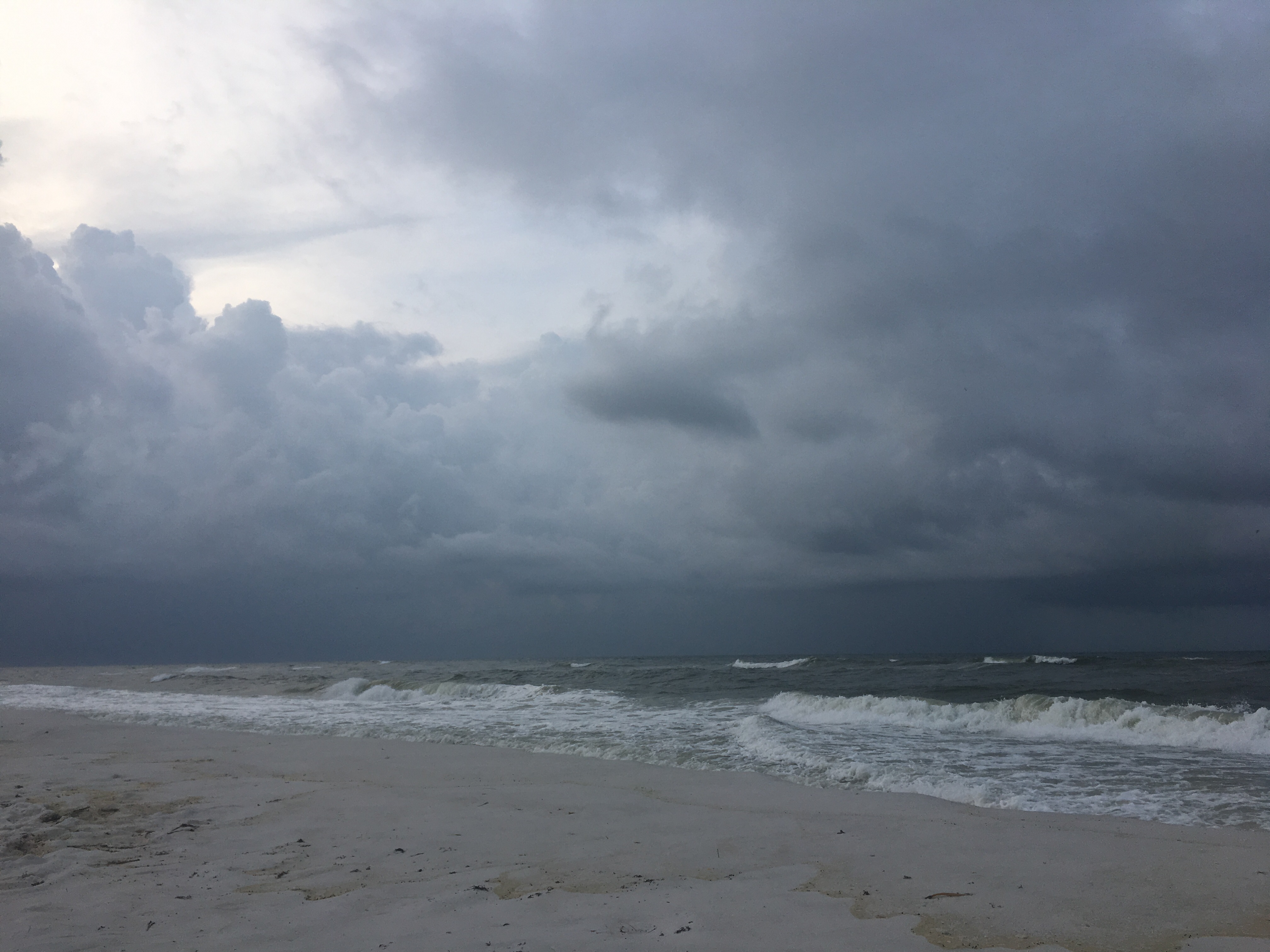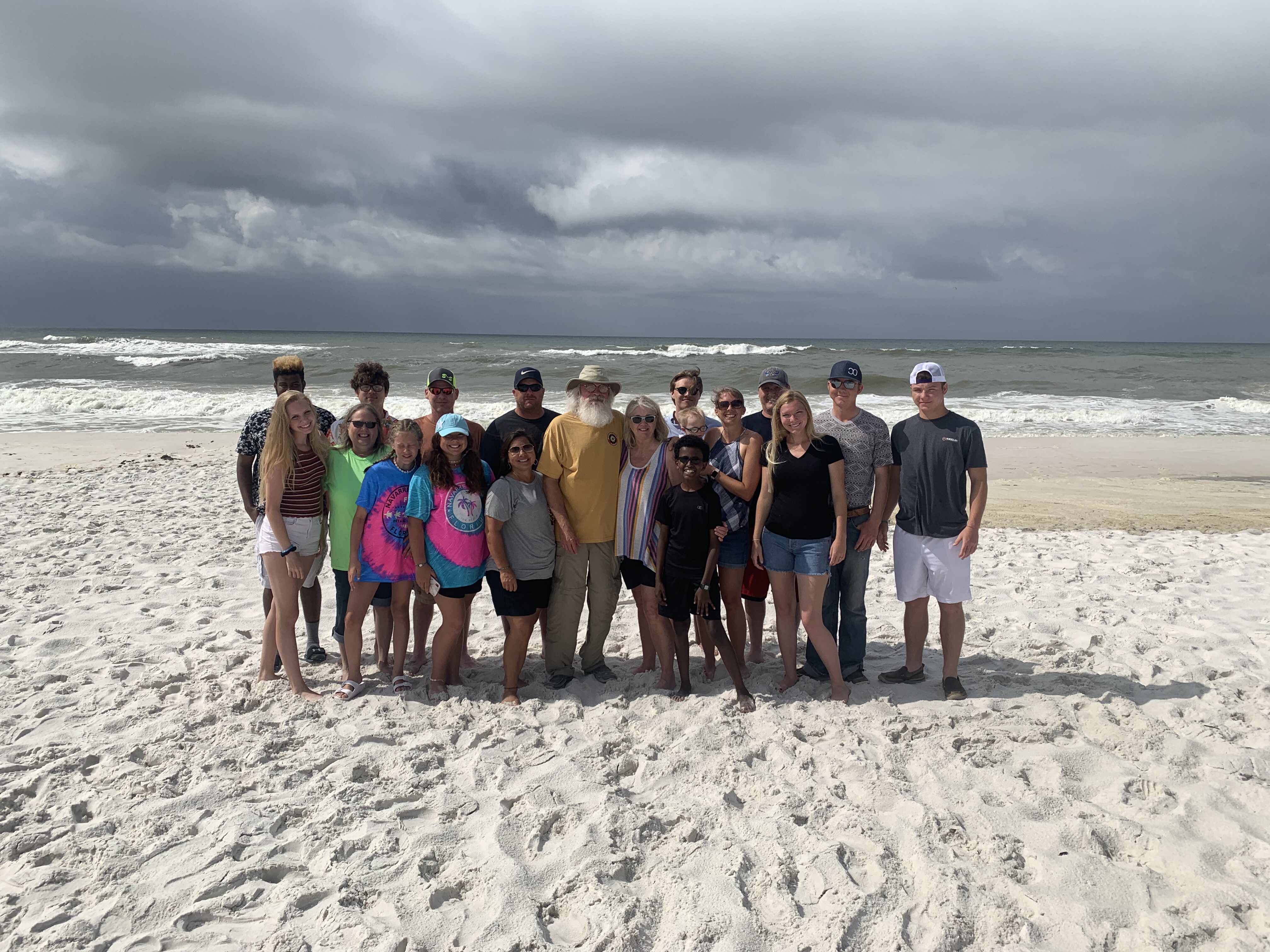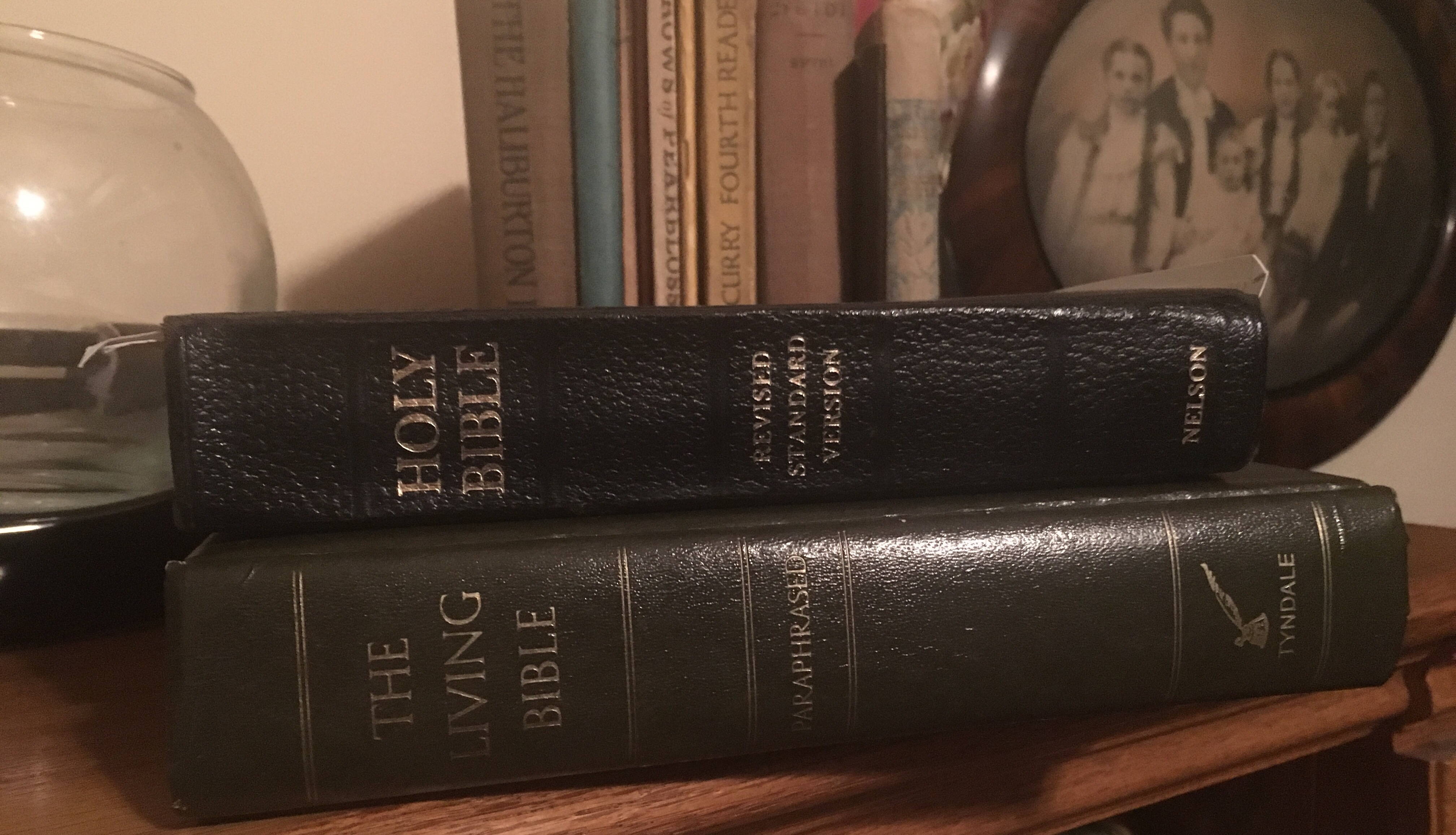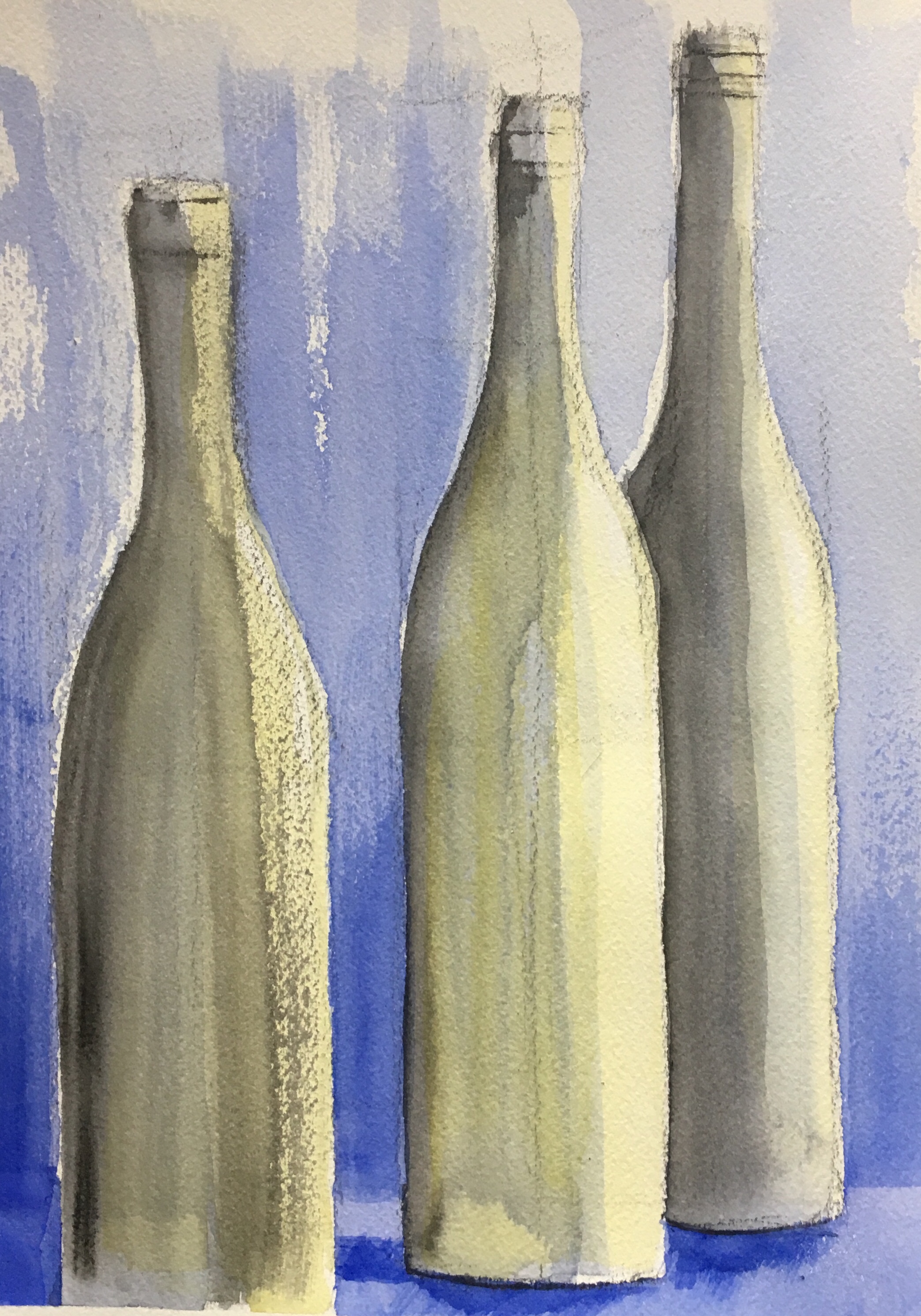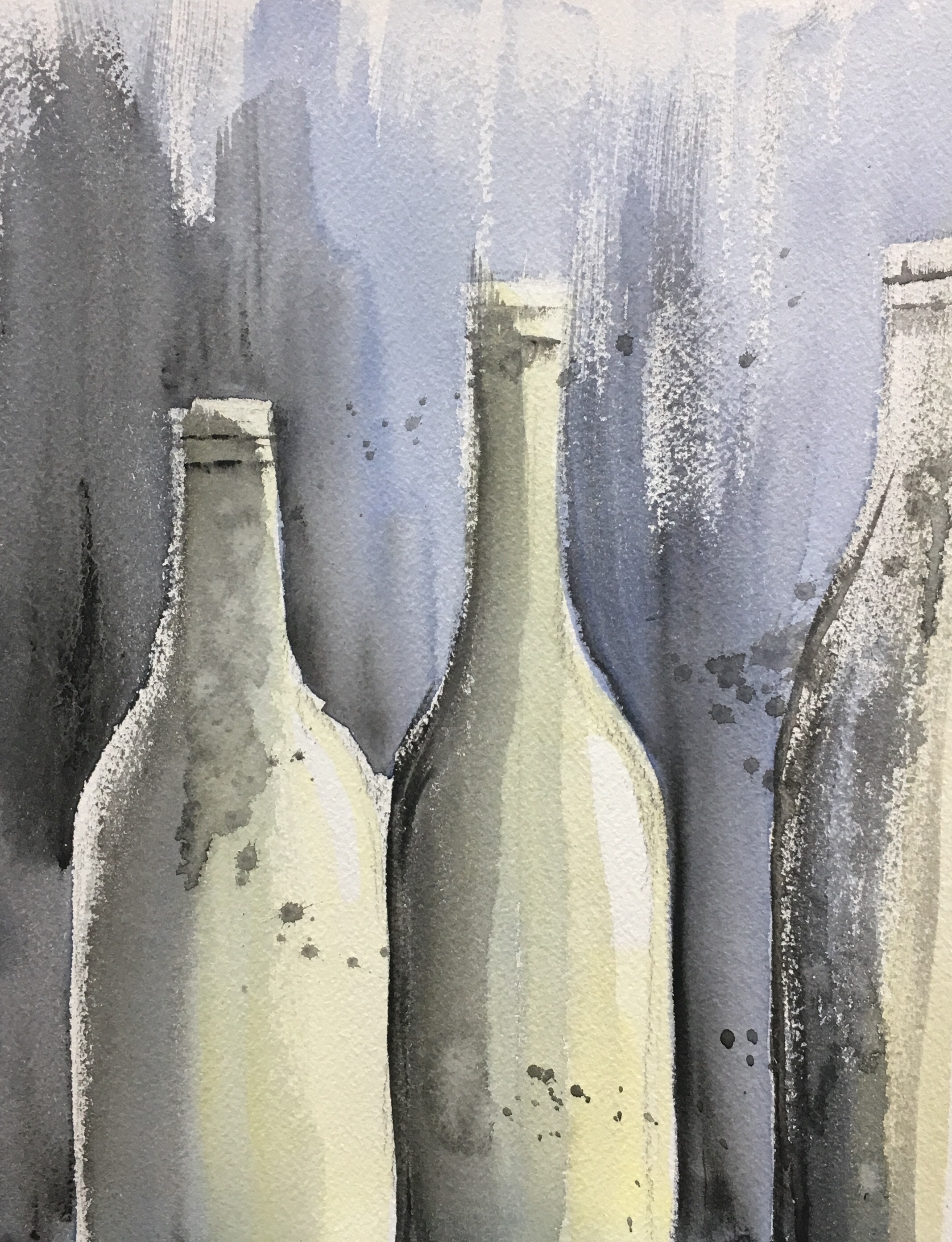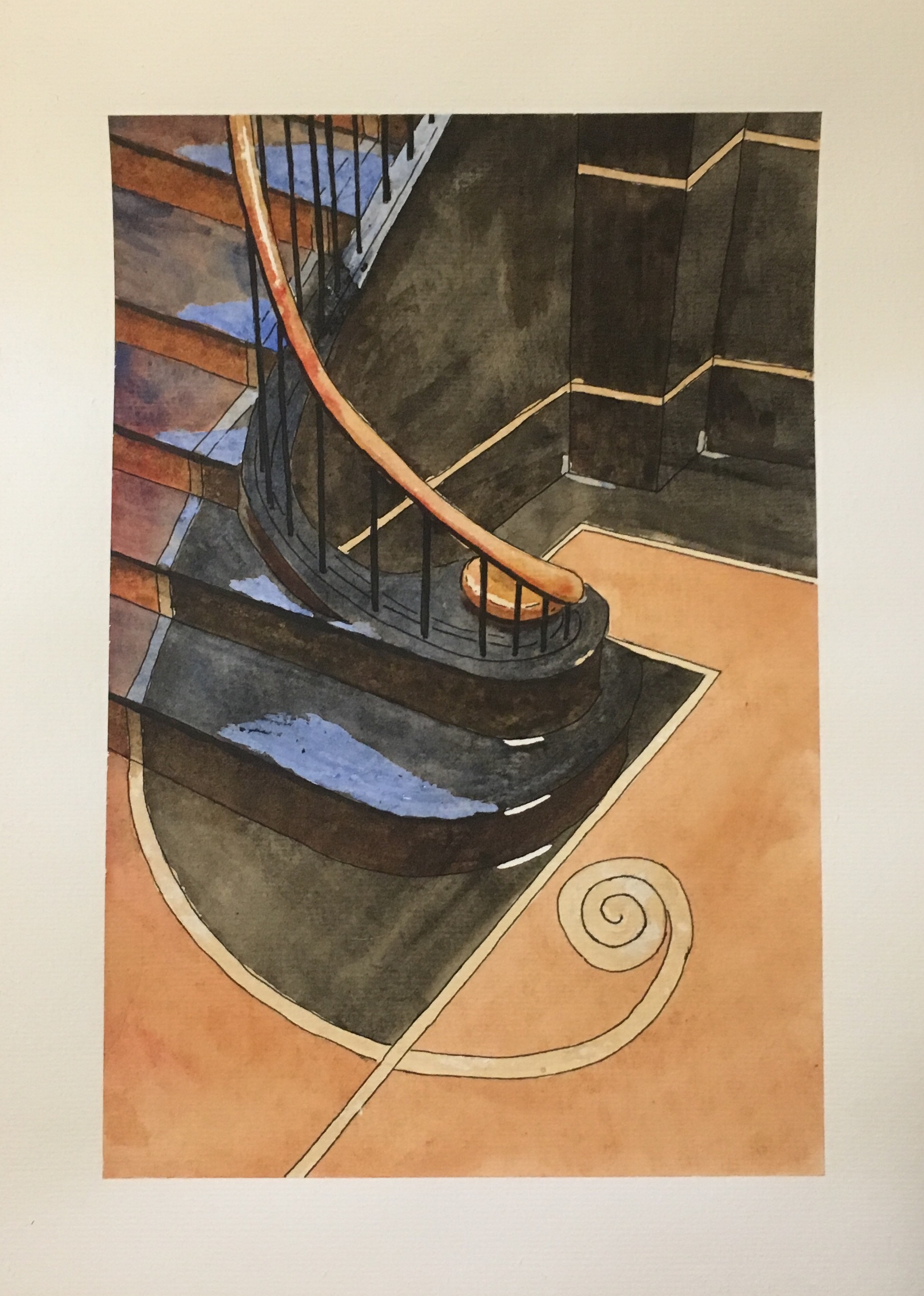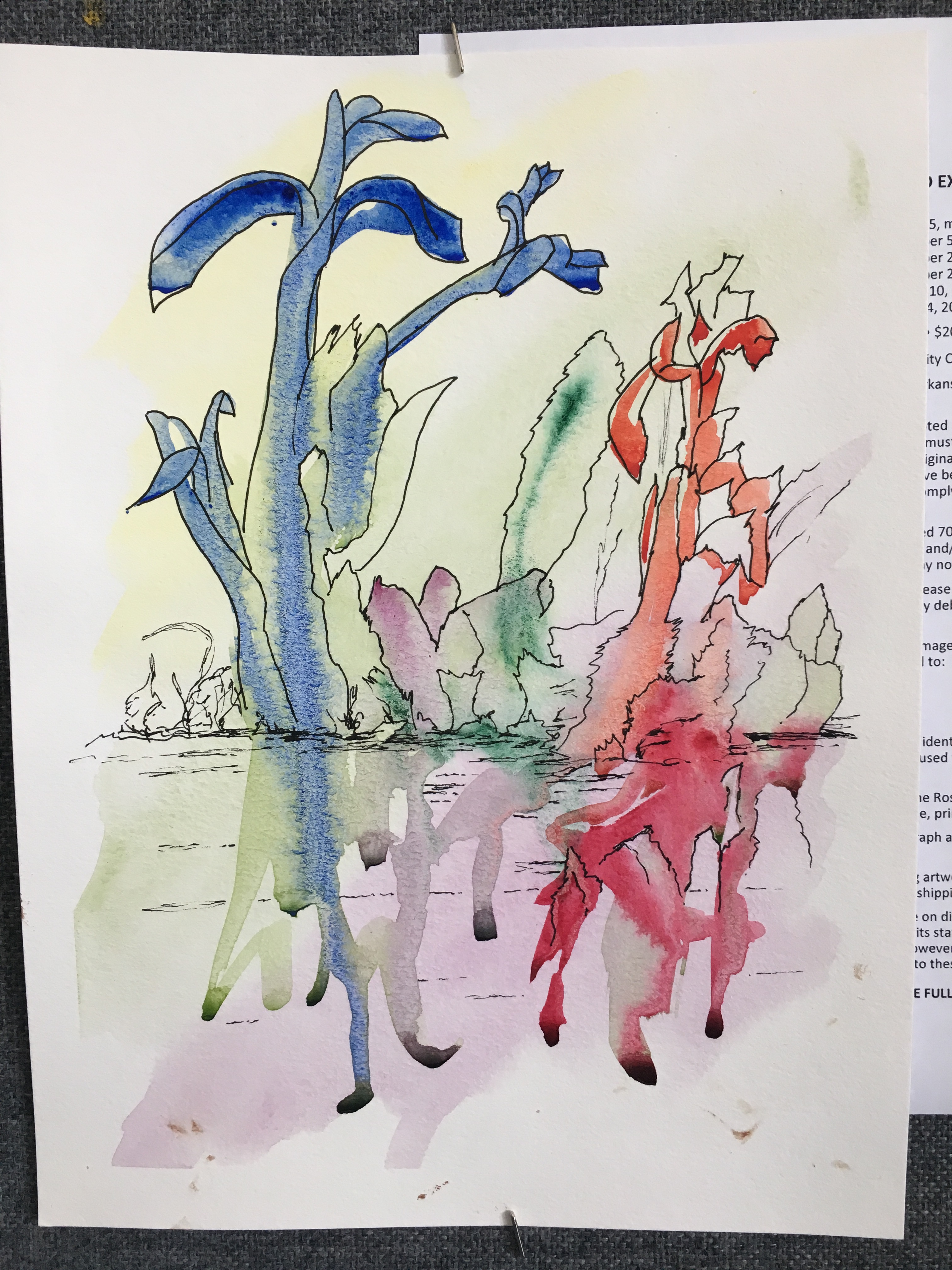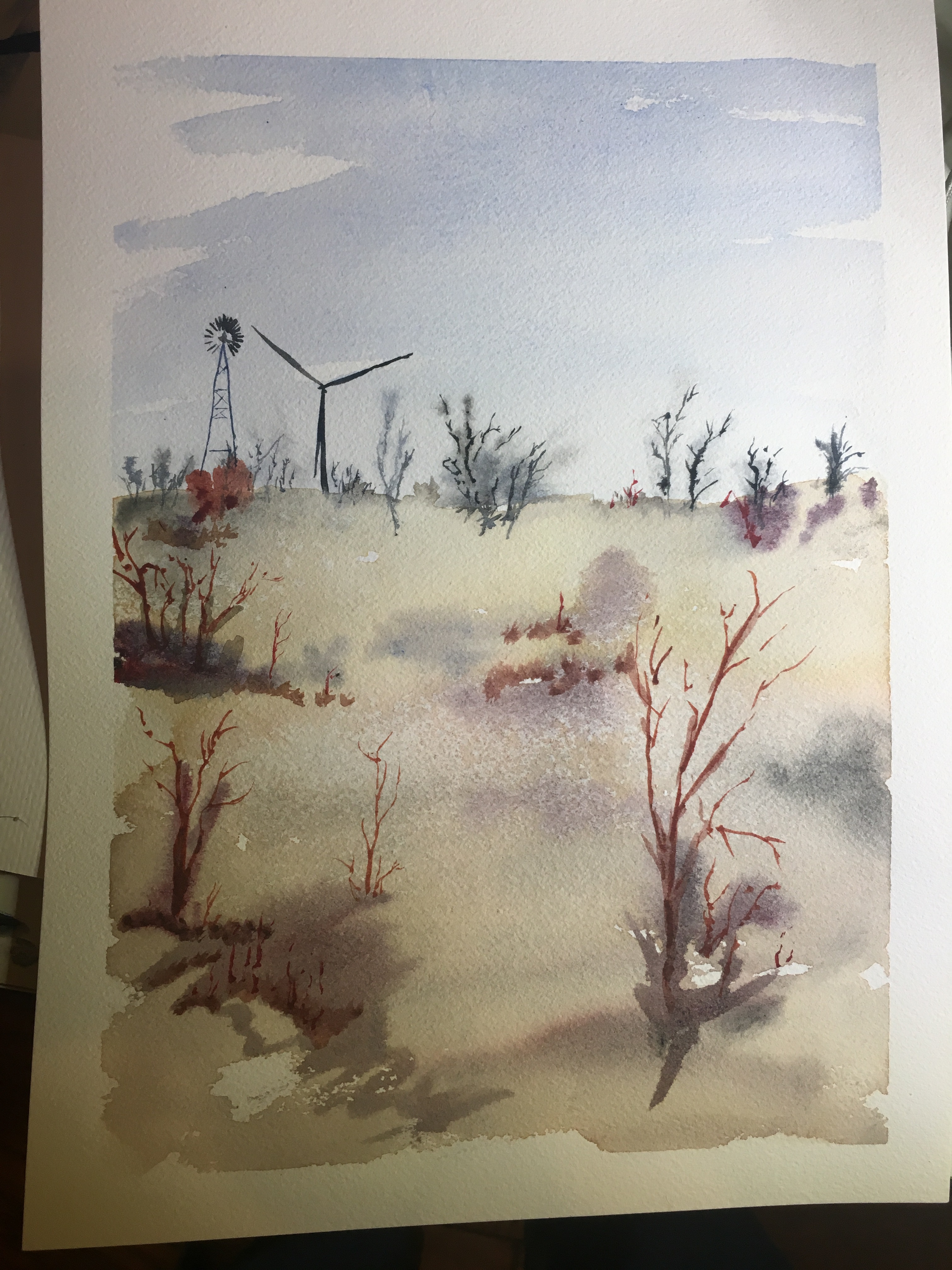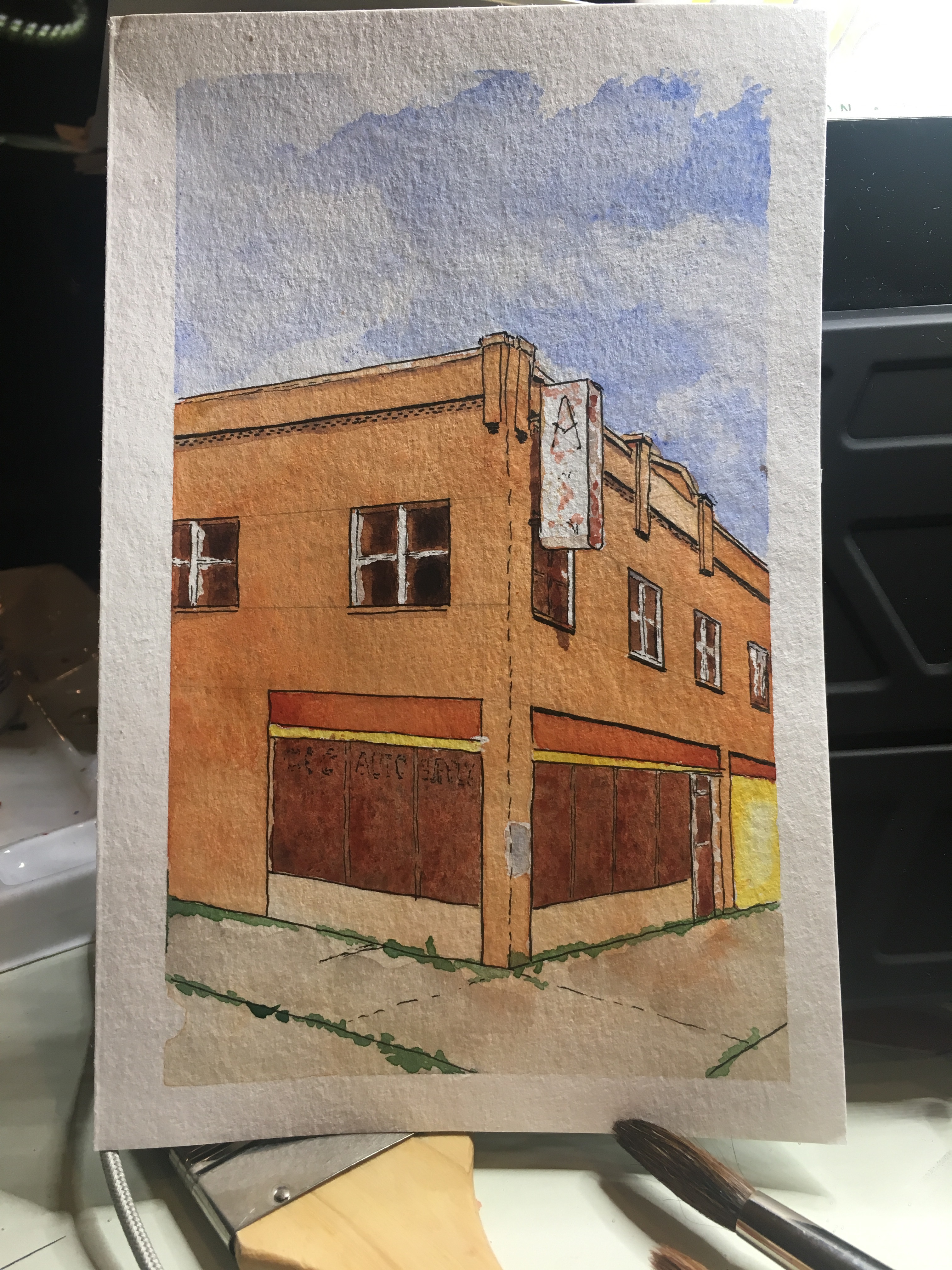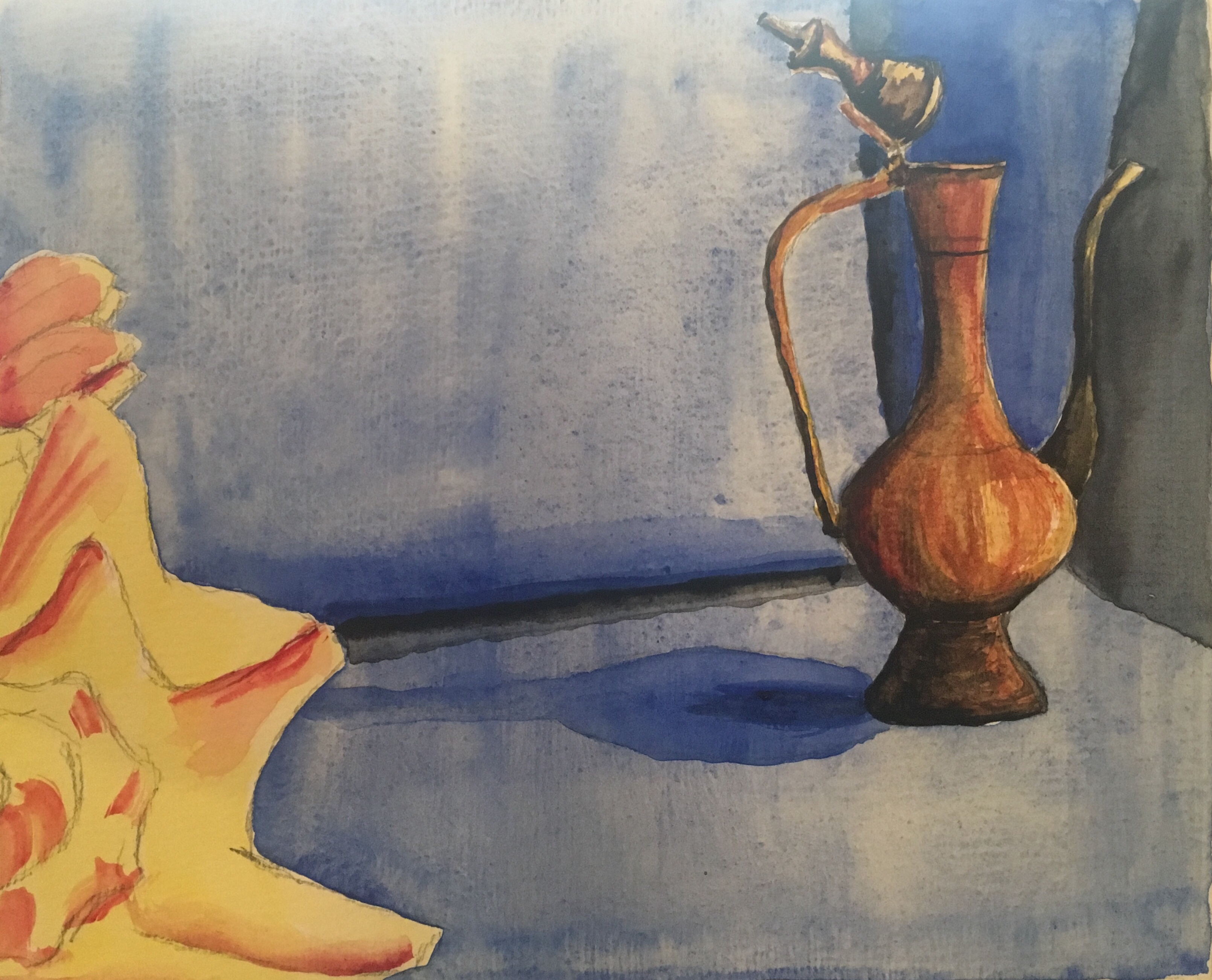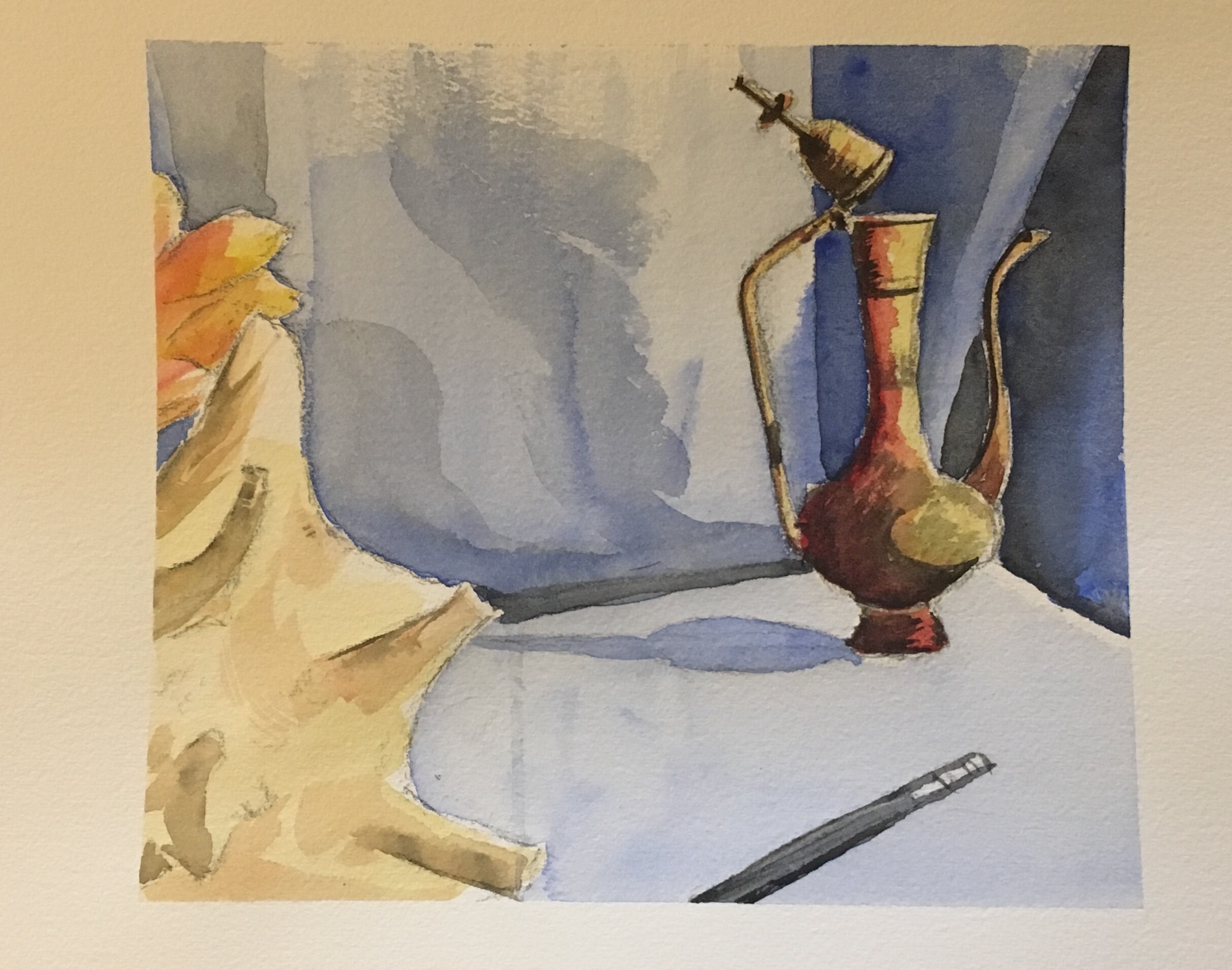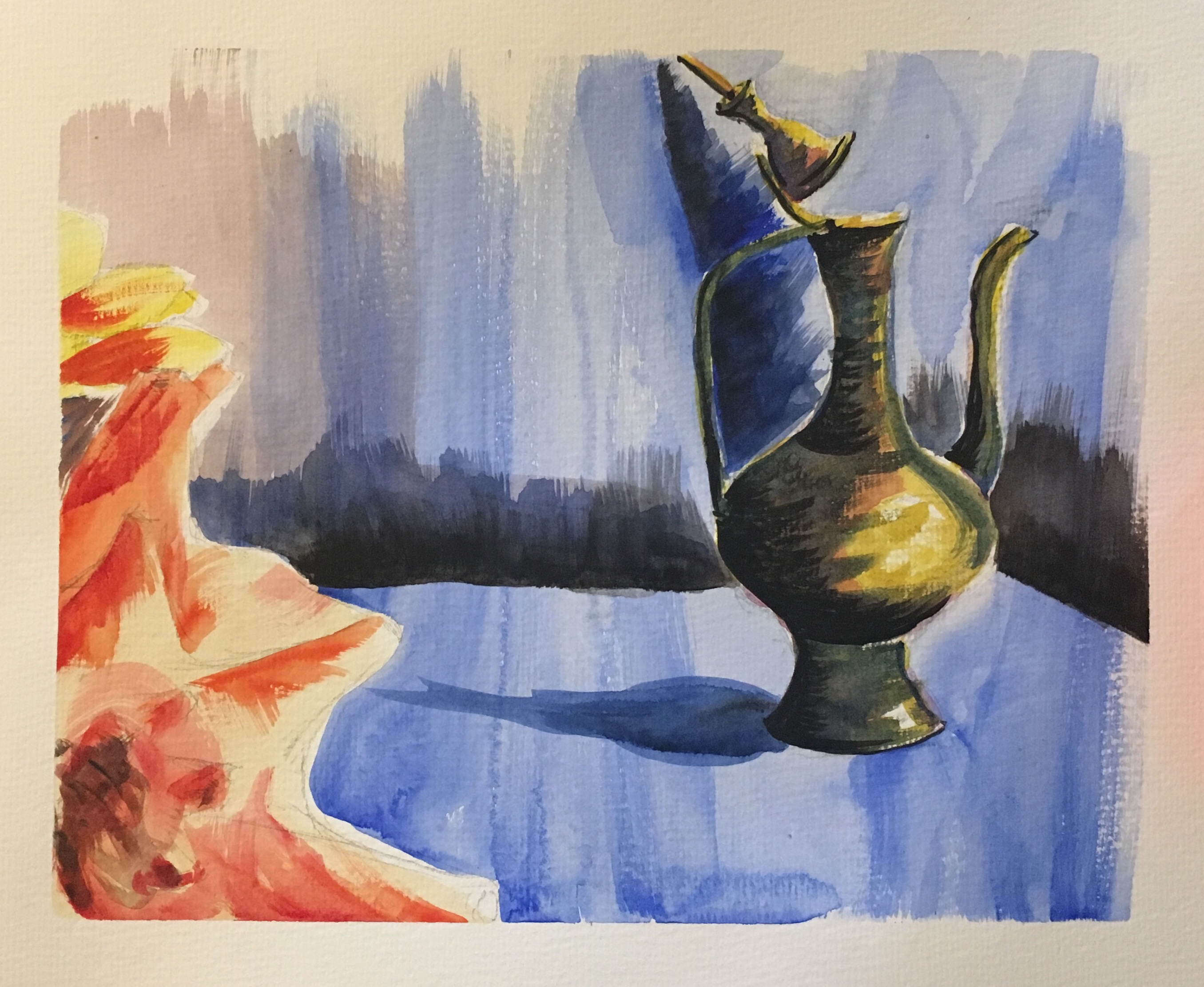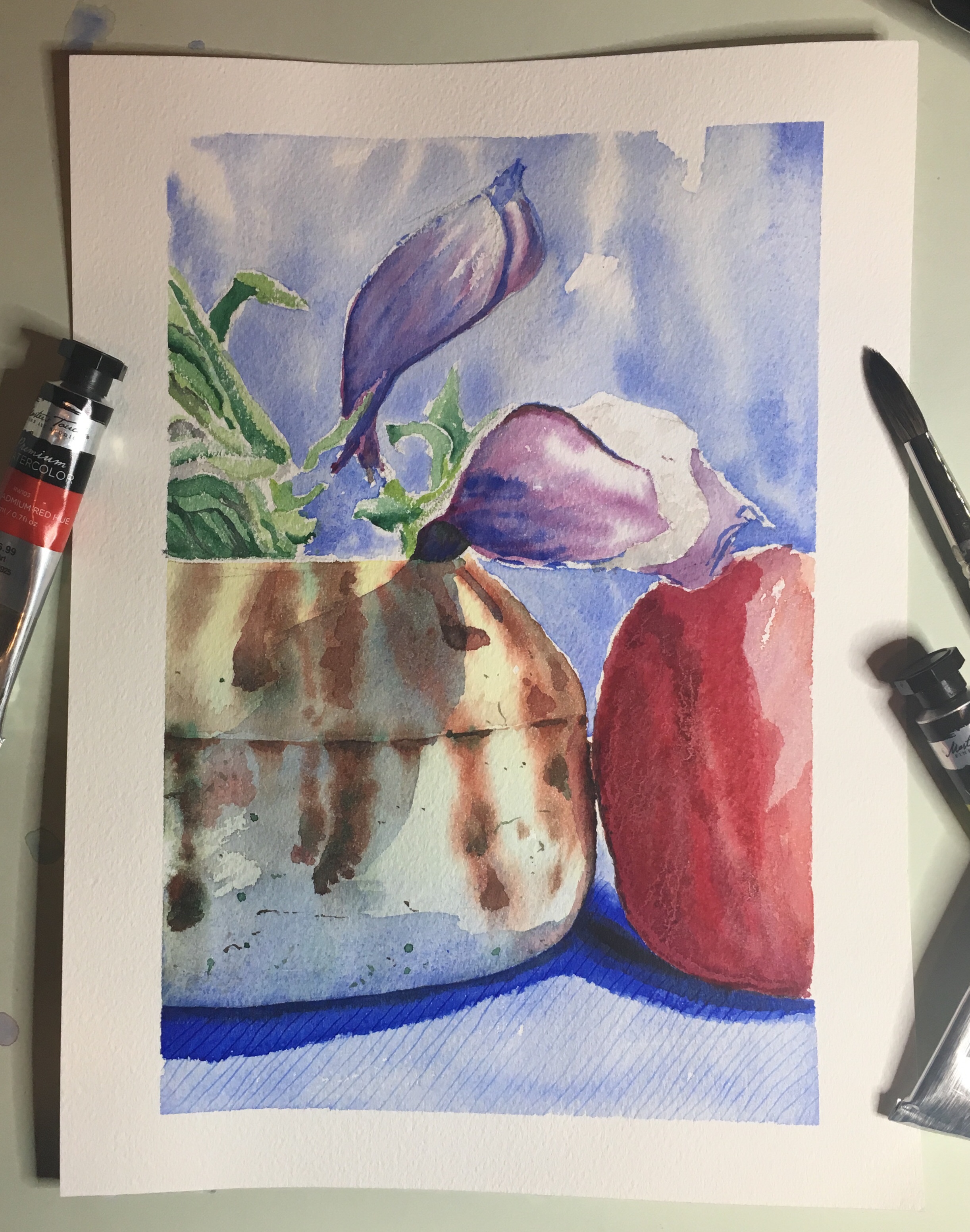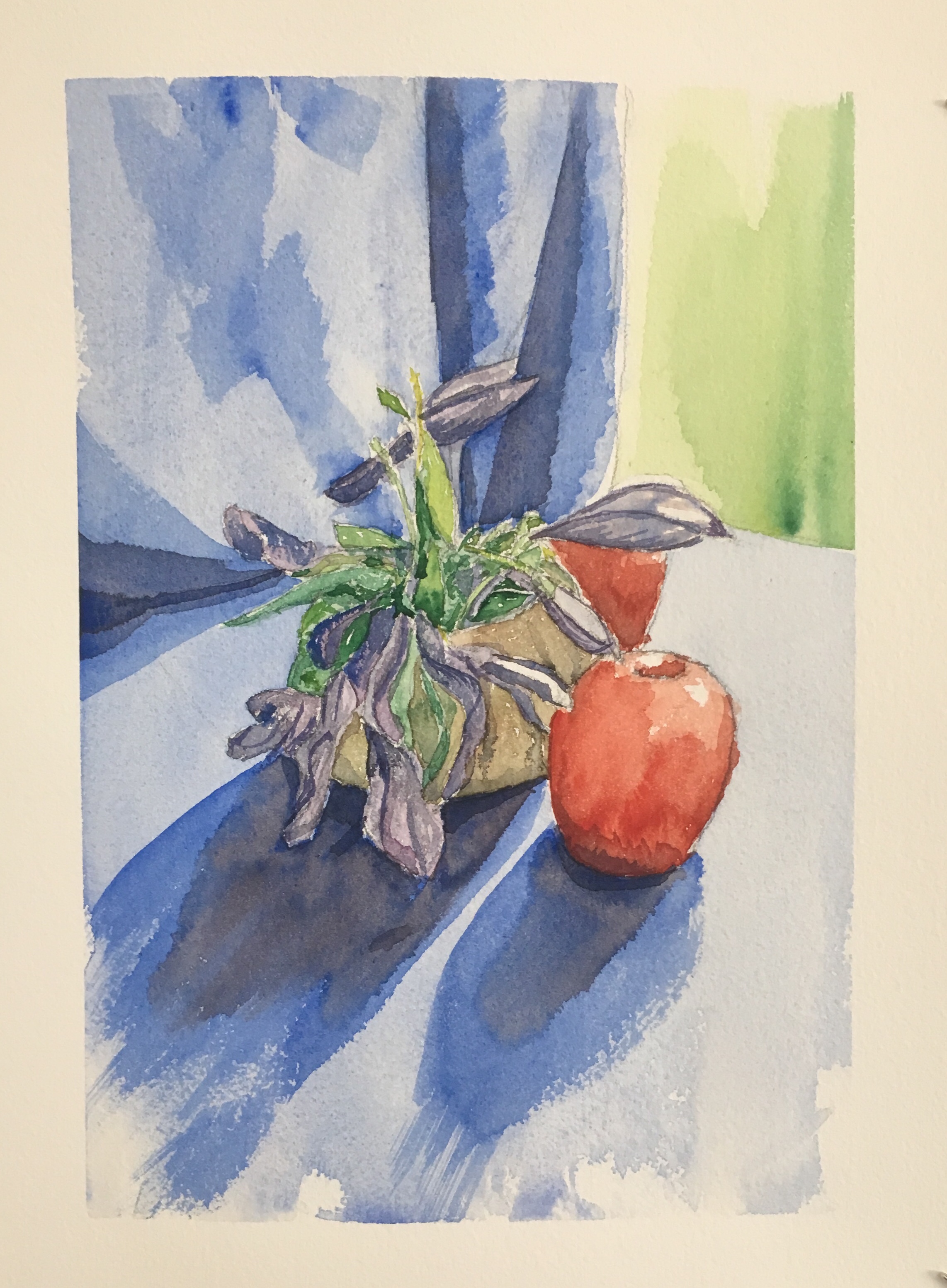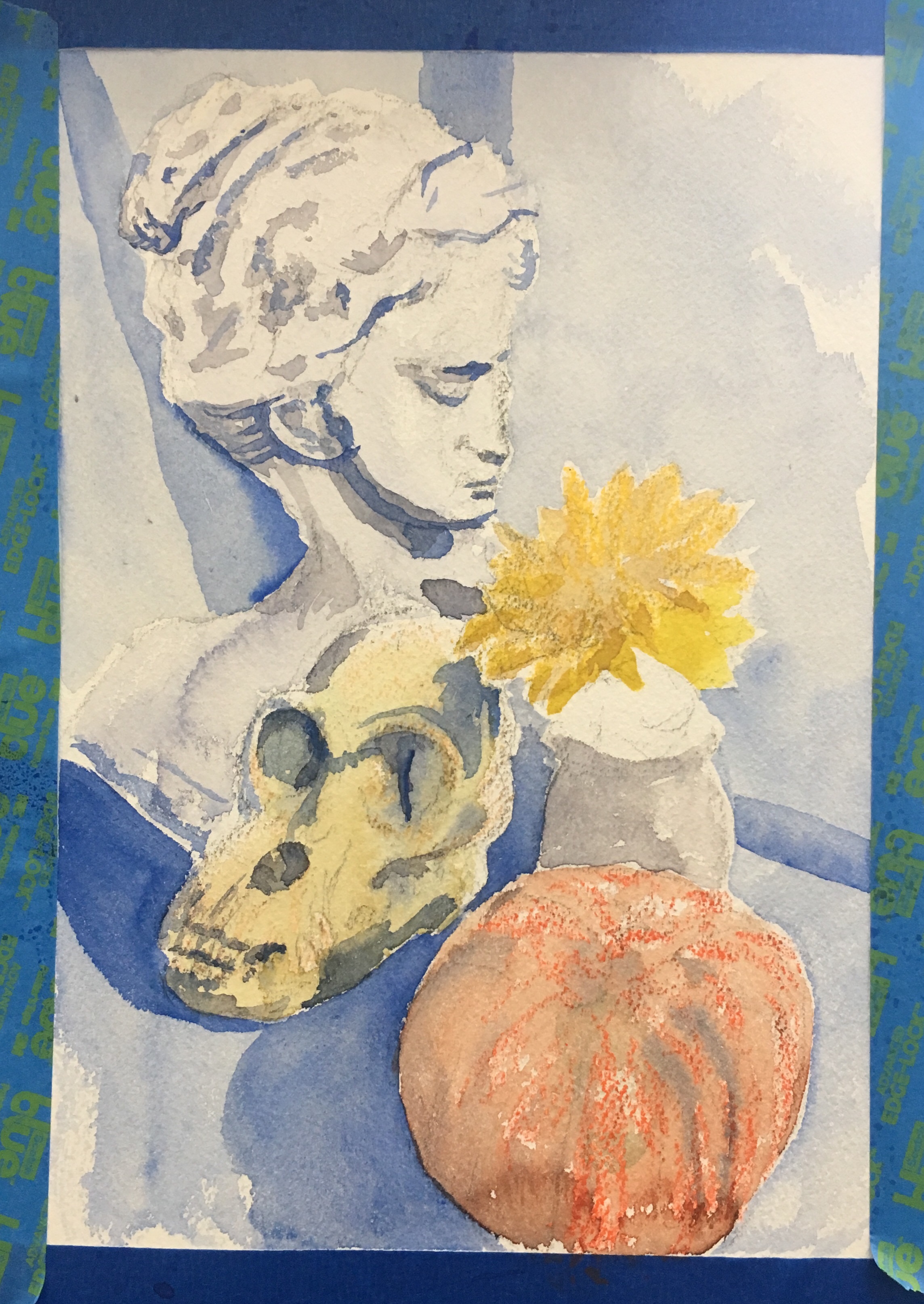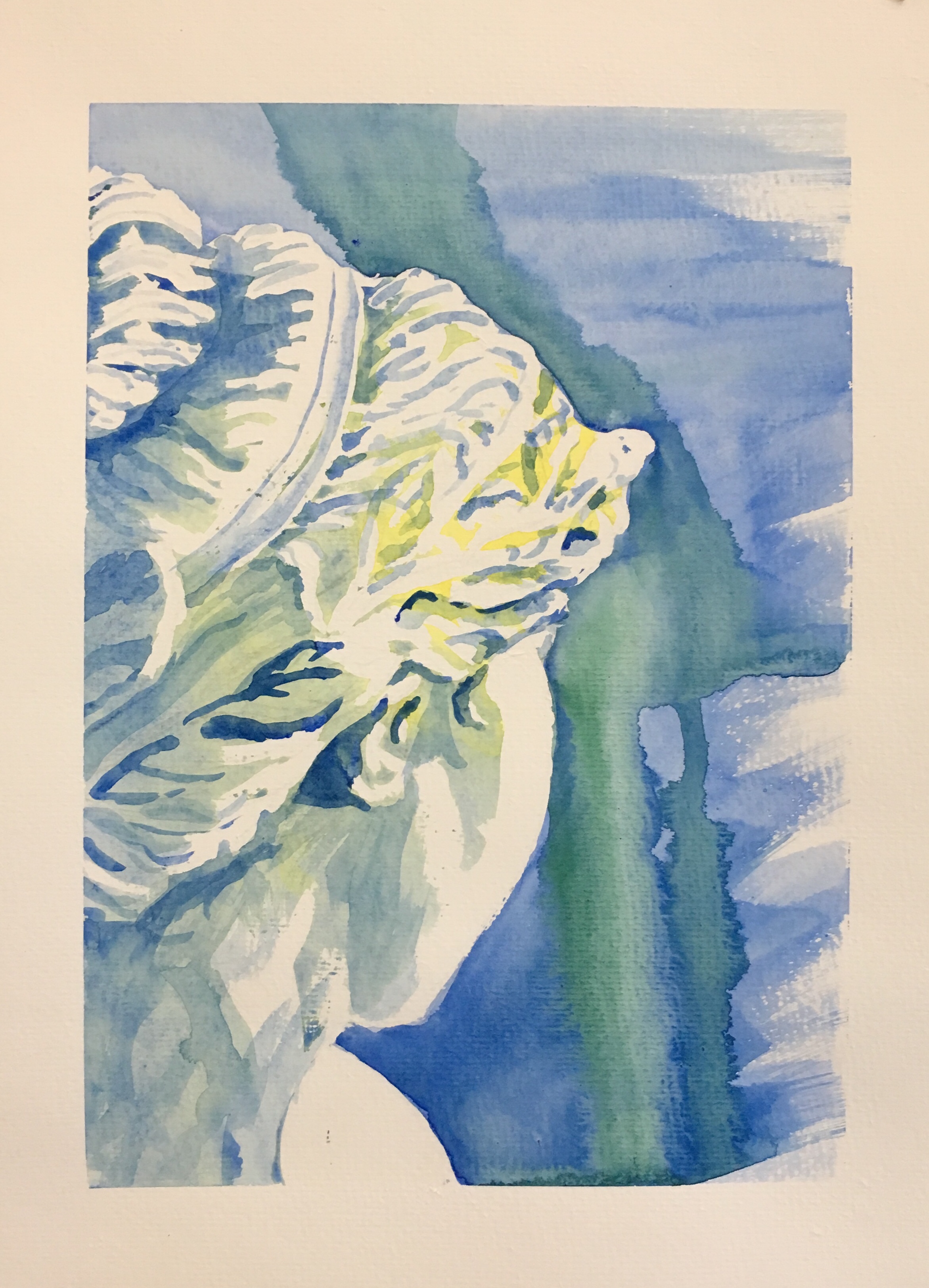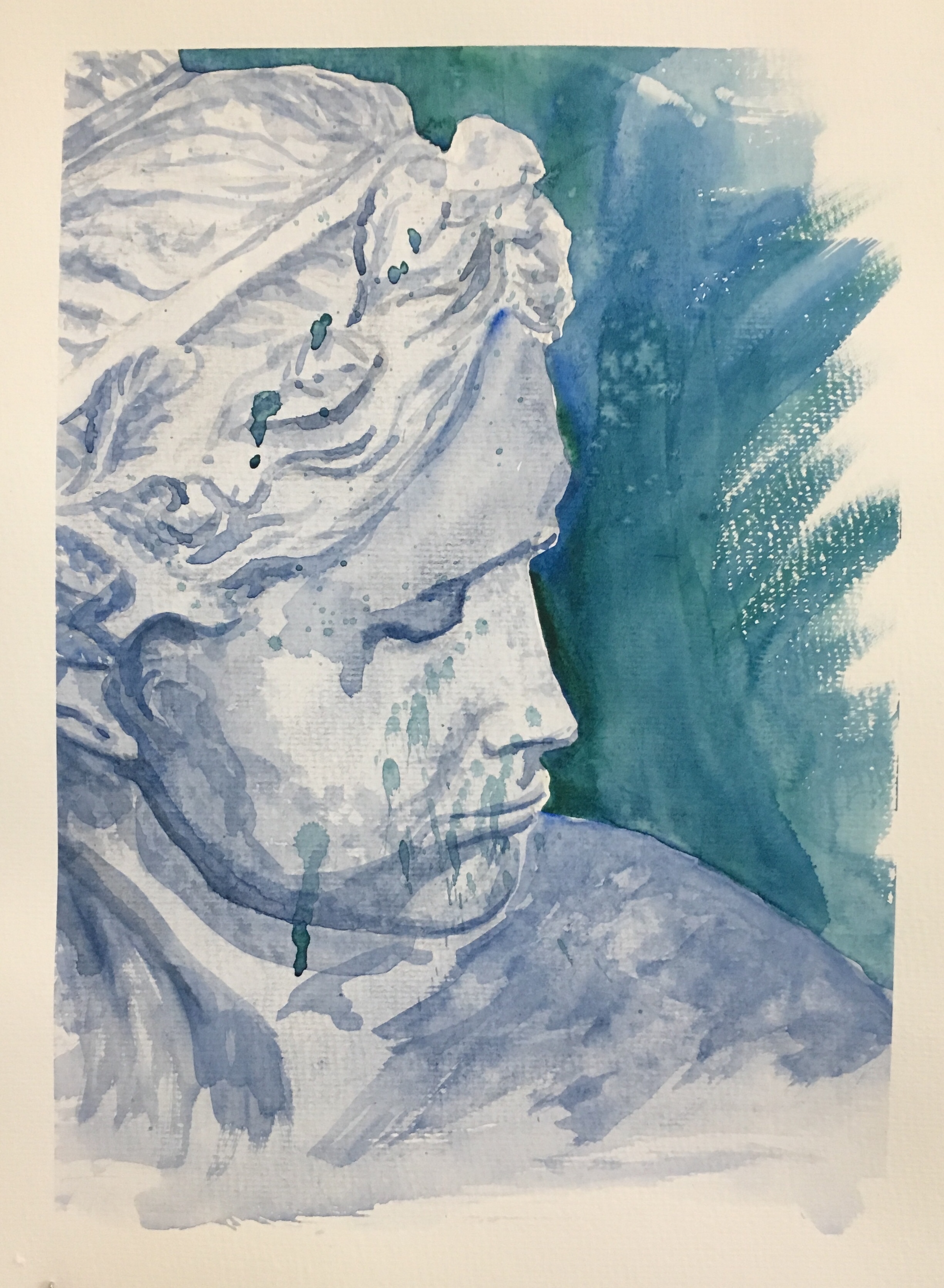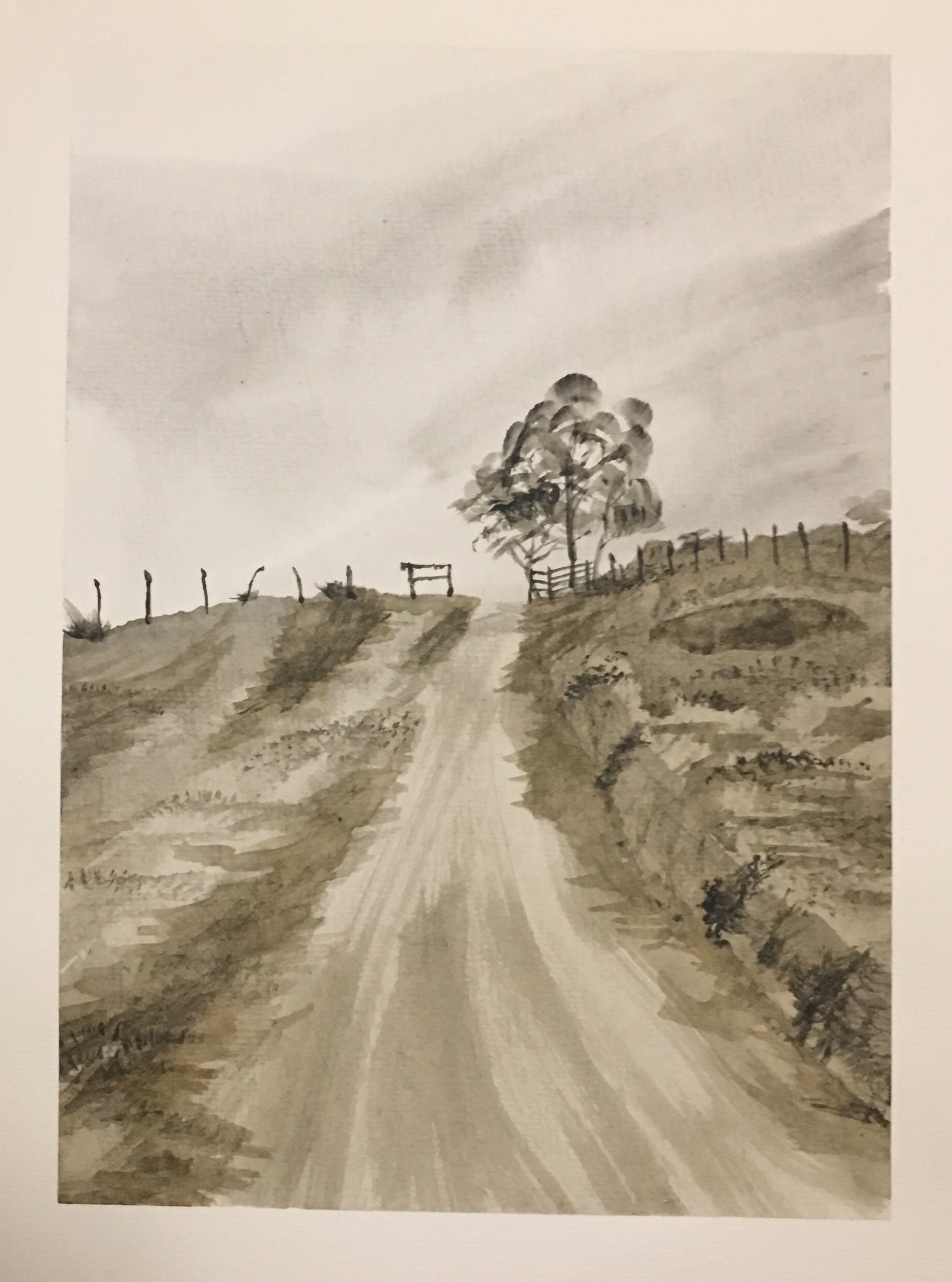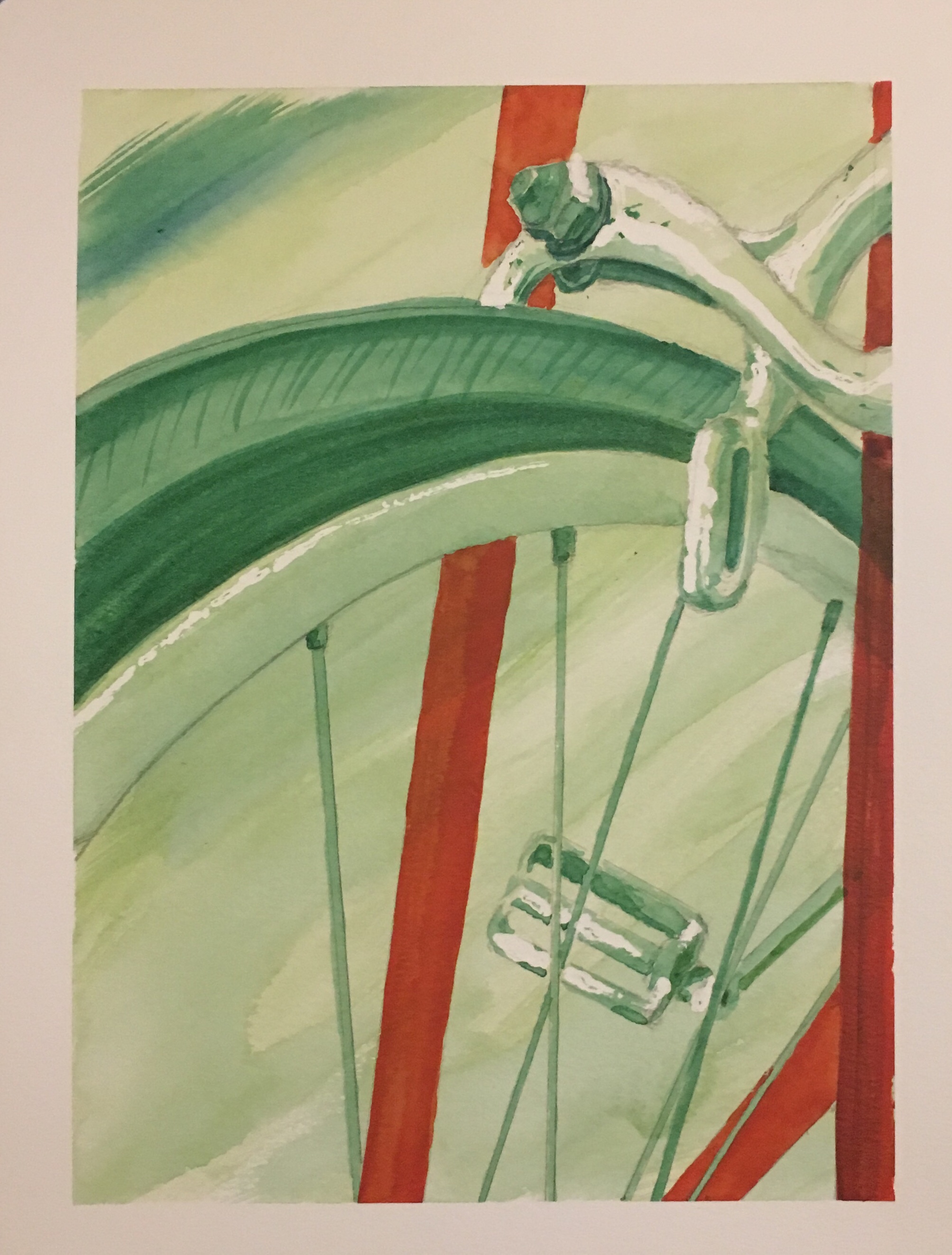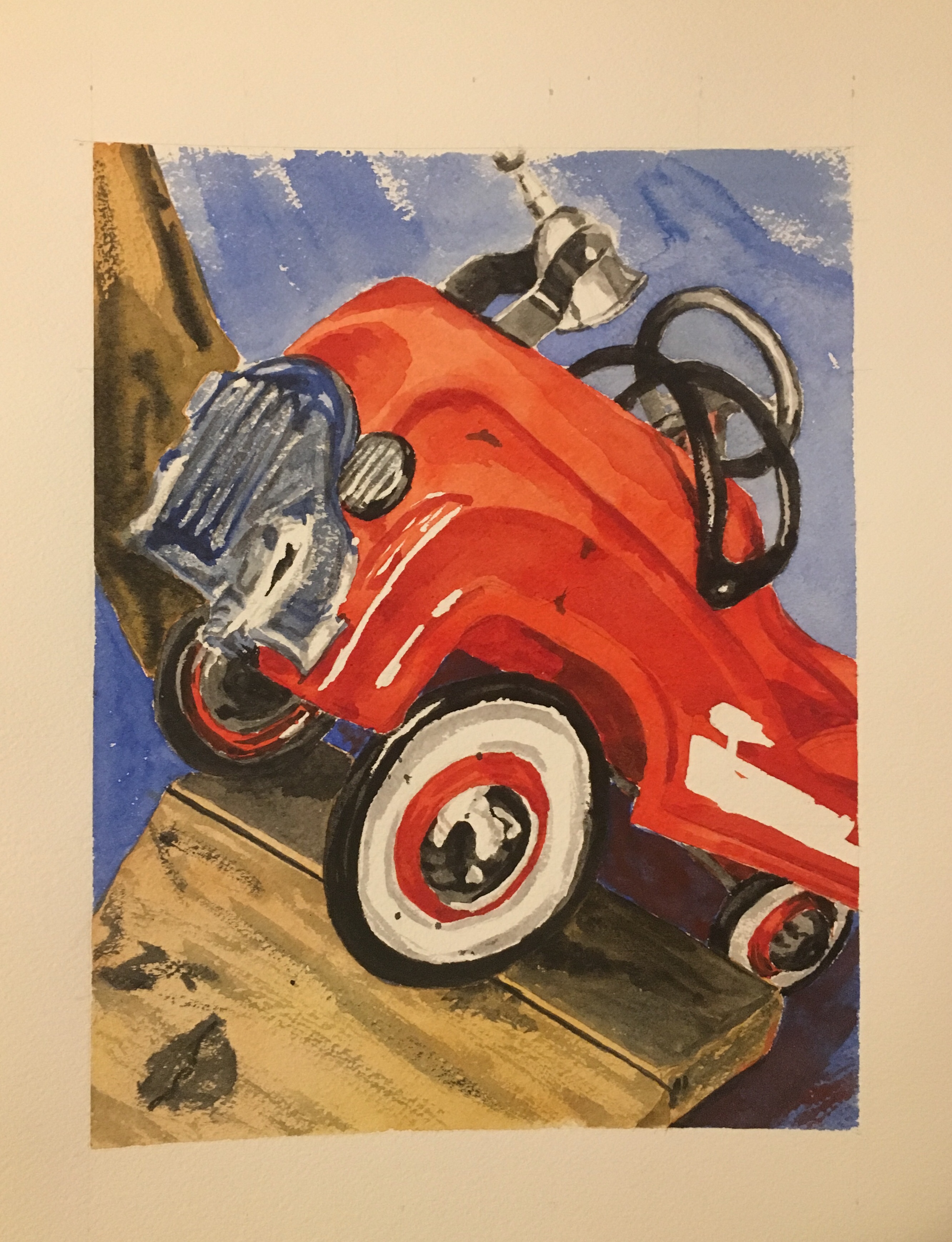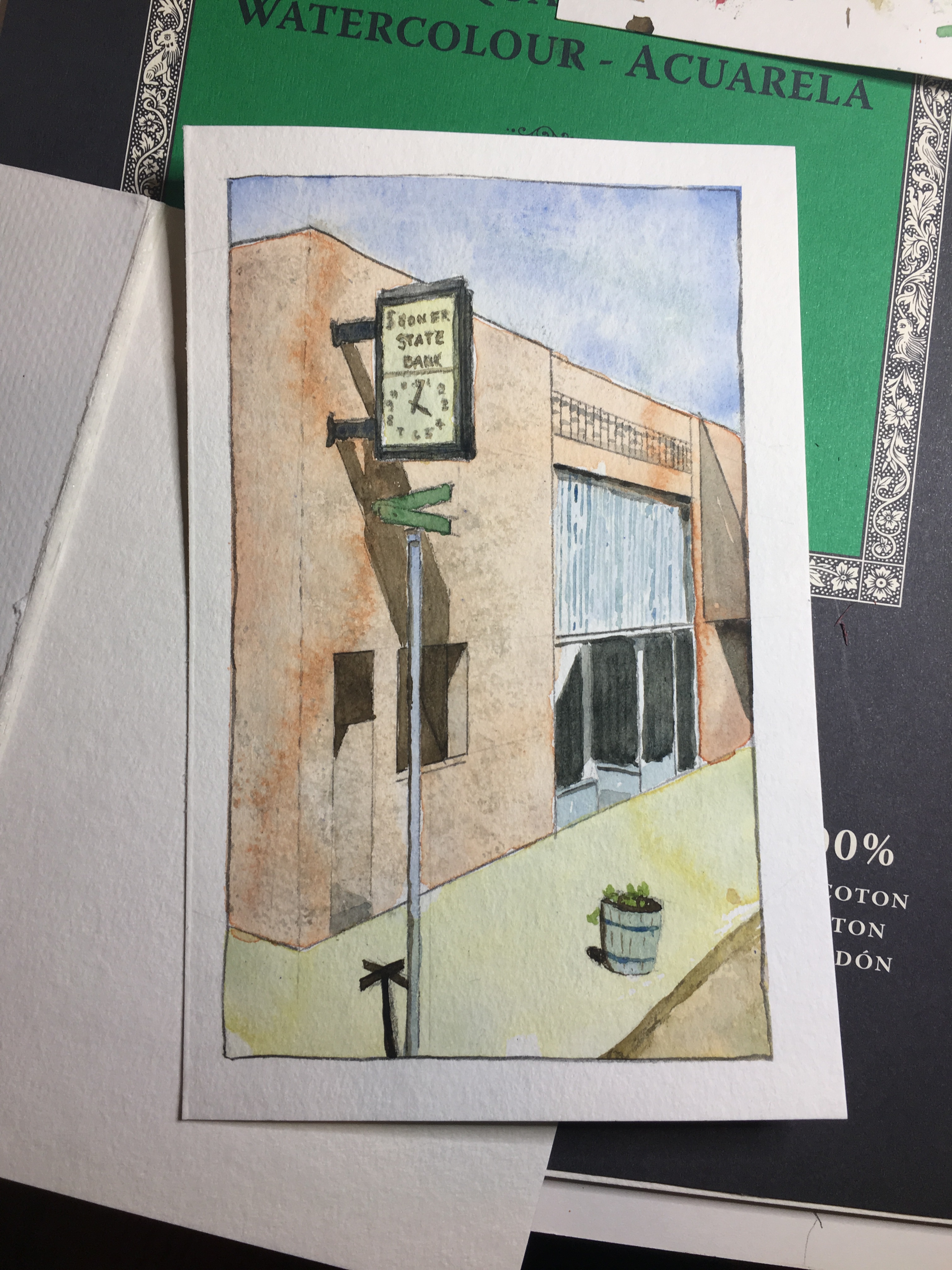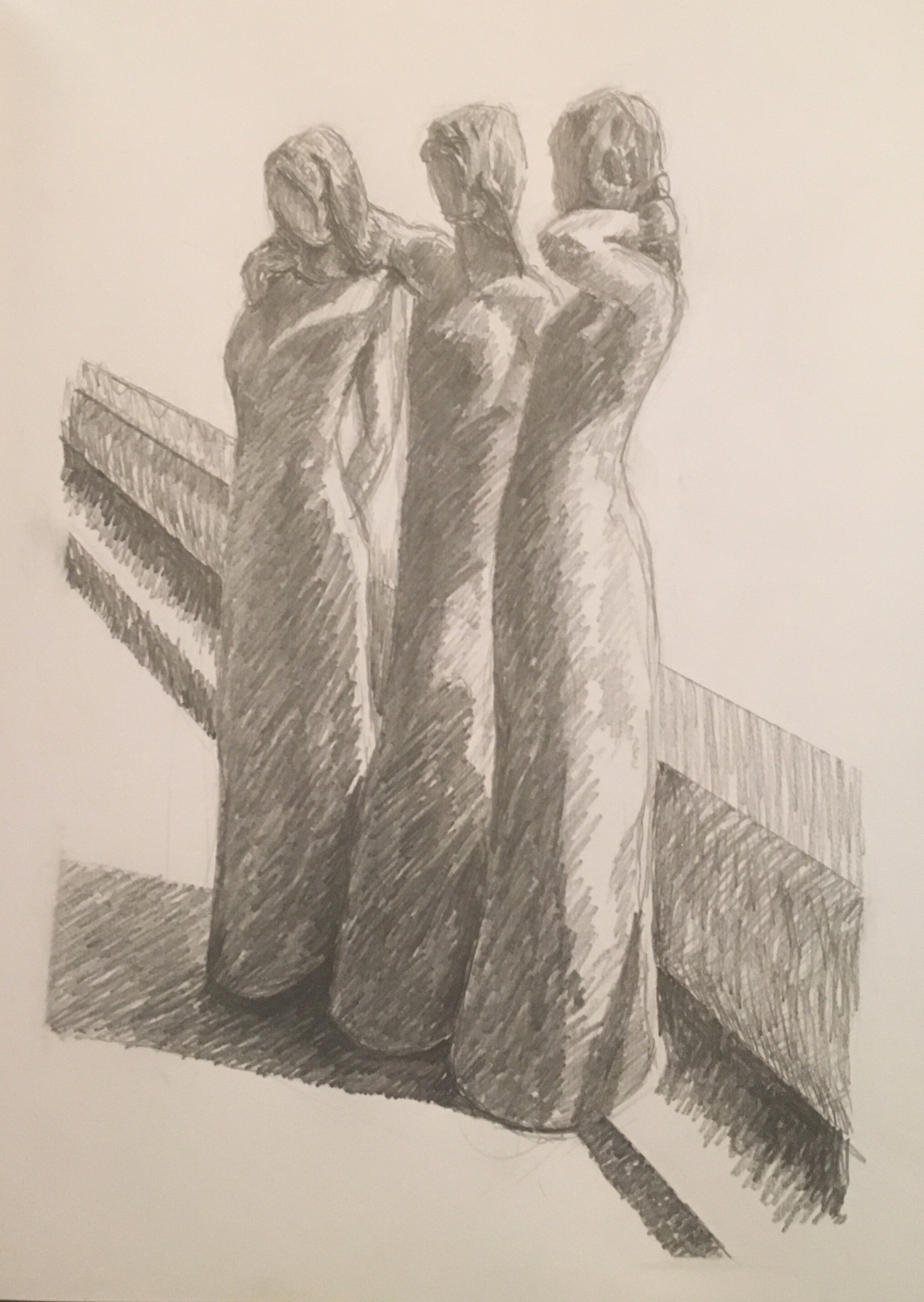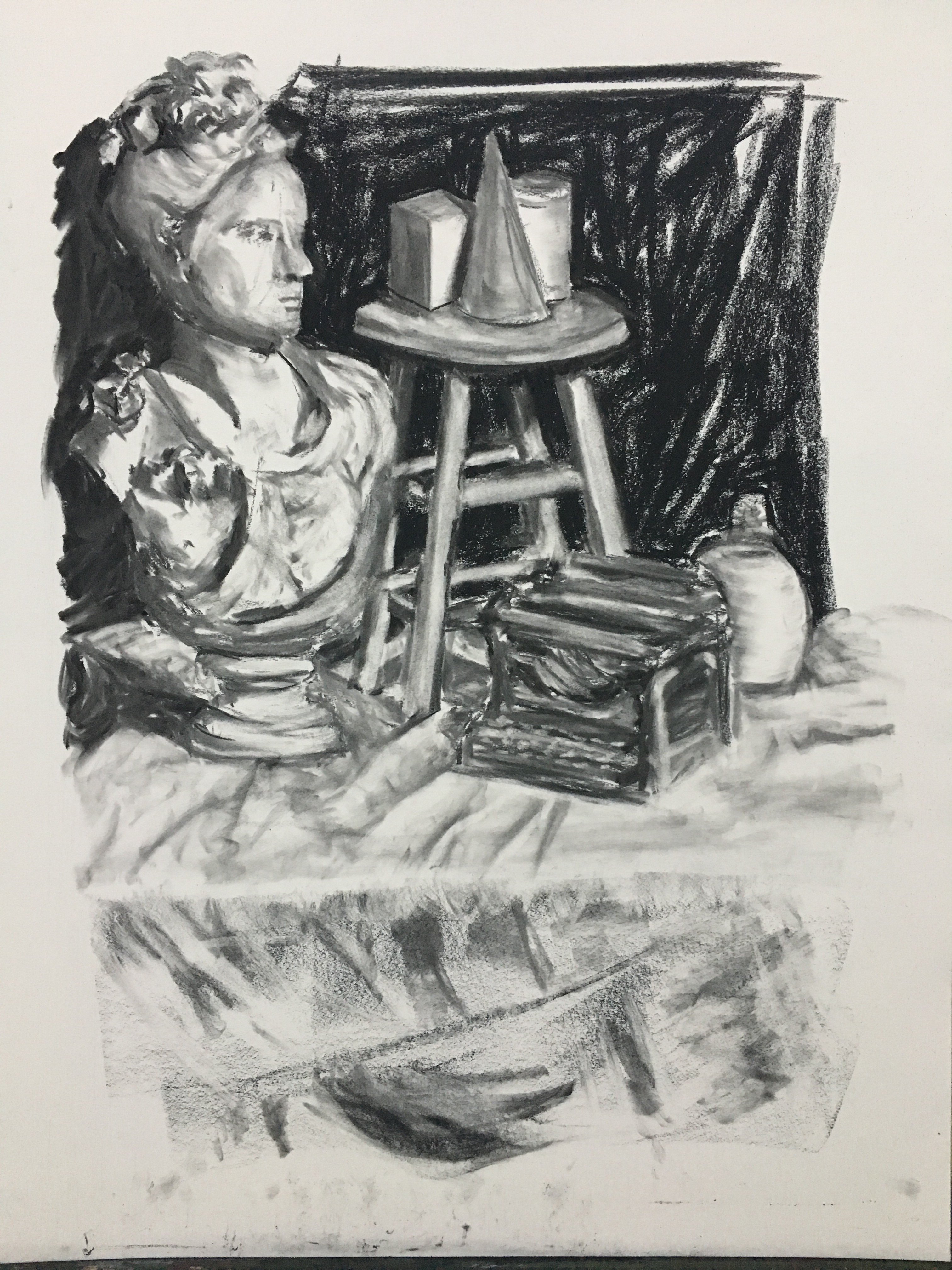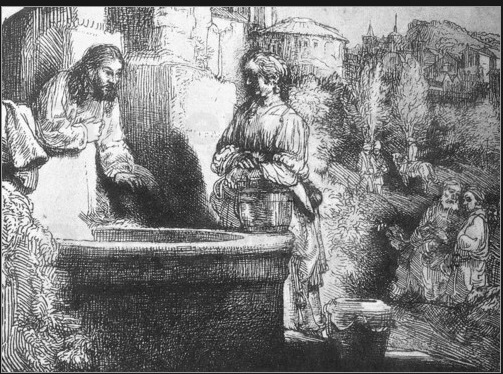
Rembrandt’s “The Woman at the Well”
Tribalism means being organized by or advocating for tribes or tribal lifestyles. The word tribal can be used to describe a kinship group or clan with a common ancestor. In Oklahoma, when we hear “tribe” our first thought is likely to be our many Native American tribes. My teaching career was divided into three locales: the Choctaw Nation, the Creek Nation, and the Seminole Nation. Most of my friends, my students, my colleagues, and neighbors have belonged to a tribe. Every culture, every continent, has such tribes, usually located in geographically proximate areas like villages or bands. They often have their own language, traditions, dress, customs, and code of law.
Tribalism can, in times of stress, solidify a group in common defense to help preserve the integrity of tradition and the likelihood of survival. Tribal behavior rose and persists as a result of its benefits to group survival. The tribe is a source of pride and identity to its members. There is strength in numbers.
But, of course, there are other tribes besides the kinships of indigenous peoples. Technology enables groups of people to form digital tribes using tools like social media. This kind of tribe, a group with shared interests, lifestyles, and habits, has been around throughout history as well.
Tribalism is human nature, instinctive: an inherited behavior. We say “Birds of a feather flock together.” Humans are social animals, not well prepared to survive alone. We are conditioned by natural selection to exhibit tribal behavior — the impulse to protect clan, or turf, or a way of life.
But tribalism has its dark side as well. Tribalism is rooted in scarcity — the assumption that there isn’t enough to go around. So we assume that we have to fight for and hoard all that we can for the tribe and deny it to those who don’t qualify. Our tribes divide us into we and the others. “We”, in almost every case, are the humans, the right, the good, God’s chosen, the righteous, the wise, the deserving. And the “others” have to be the lesser beings, the wrong, the evil ones, the godless or spawn of the devil, the foolish, ignorant, or stupid, the enemy who wants what is ours. I’ve seen this in my own words and deeds.
Even within the tribe, there are always sub tribes, divisions, dissenters. The tribe, or human nature, insist upon loyalty, conformity, adherence to dogma. So the tribal member who doesn’t conform, the dissenter who questions or behaves “abnormally”, is subject to ridicule, castigation, bullying, or expulsion.
In the news today, we can see that tribalism is thriving. The tribes of economy, politics, religion, nationality, social philosophy, are dividing us into ever smaller, more polarized groups — each increasingly insistence that no compromise can be tolerated. We see how easily groups vilify their adversaries, how infrequently we consider (or even listen to) any opposing view, calling publications that question our positions as “fake news”, how little evidence is considered or reason applied, and how quickly a confrontation turns violent.
Jesus lived in a culture that was quintessentially tribal. His world consisted of Jews (descendants of Abraham) and Gentiles (everyone else.) Within his Jewish culture there were distinct tribes. The Jews, of course, considered themselves God’s chosen people, and it was perfectly acceptable for the Jews to consider everyone else to be no better than swine. Within the tribe, men were vastly more important than women or children. The first born son was better than any of his siblings. The priests were more worthy than any others. The rich were more blessed and deserving than the poor. The sick were considered unclean sinners. Jesus’s society was very structured and rigid.
Jesus taught us about bread. In John 6, shortly after miraculously feeding a multitude with a few loaves and fishes, he was describing the bread of life that comes down from heaven. The people ask Jesus what they should do in order have this bread – to do God’s work. He answered that they should believe in him. But they wanted a sign, another miracle, to convince them, something like the mana in Moses’ day.
Jesus said, “I tell you the truth, Moses didn’t give you bread from heaven. My Father did. And now he offers you the true bread from heaven. The true bread of God is the one who comes down from heaven and gives life to the world.”
“Sir,” they said, “give us that bread every day.”
Jesus replied, “I am the bread of life. Whoever comes to me will never be hungry again. Whoever believes in me will never be thirsty.
He was given to the world — not just to Israel, to the tribes of the Jews, but — to whoever believes in Him.
In his parable, the Good Samaritan, Jesus purposely chose a Samaritan, a separate branch of Israelites, despised by Jesus’ tribe, to illustrate a good neighbor, an example of love.
Jesus was asked by a lawyer, testing him, “Teacher, what must I do to inherit eternal life?” Jesus, in turn, asked, “What is written in the law? How do you interpret it?” And the lawyer answered, “You shall love the Lord your God with all your heart, with all your soul, with all your mind, and with all your strength; and love your neighbor as yourself.” Jesus replied, “You have answered correctly. Do this and you shall live.” Being a lawyer, in order to justify himself, he further asked, “Who is my neighbor?” So Jesus tells the story:
Jesus answered, “A certain man was going down from Jerusalem to Jericho and he fell among robbers, who both stripped him and beat him, and departed, leaving him half dead. By chance a certain priest going down that way. When he saw him, he passed by on the other side. In the same way a Levite also, when he came to the place, and saw him, passed by on the other side. But a certain Samaritan as he travelled, came where he was. When he saw him, he was moved with compassion, came to him, and bound up his wounds, pouring on oil and wine. He set him on his own animal and brought him to an inn, and took care of him. On the next day, when he departed, he took out two denarii, gave them to the host, and said to him, ‘Take care of him. Whatever you spend beyond that, I will repay you when I return.’ Now which of these three do you think seemed to be a neighbor to him who fell among the robbers?”
He said, “He who showed mercy on him.”
Then Jesus said to him, “Go and do likewise.”
-Luke 10:30-37
I’ve heard someone say, “I’ll start being concerned about refugees whenever the last homeless veteran has a job and a place to live.” You can replace the words “refugees” and “veterans” with any other groups you wish – this statement typifies tribalism. It would be more honest to say, “I’ll never be concerned about refugees.” The sentiment expressed is one of justification for disregard, for apathy, for diminishing others as unworthy and unwelcome.
Tribal attitudes are often thought of as pride, but conceal an underlying insecurity and lack of confidence. You don’t often find genuinely confident, secure, healthy people displaying tribal behavior. More typically, even when they claim to be enlightened, guided by self interests, they tend to act out their fear of others. As do I. The “otherness” we see in a group is usually the thing we fear the most.
There are many Christian tenets that we accept and understand that we just don’t put into practice. Let’s take a look. We have theological virtues: Faith, hope, charity. We have cardinal virtues: prudence, justice, temperance, and courage. Other virtues include: patience, humility, kindness, wisdom, and diligence. There’s nothing there about exclusion, arrogance, or demeaning others.
On the other hand, consider the cardinal sins: Pride, greed, lust, envy, gluttony, wrath, and sloth. How many of those come into play when we set up attitudes of “us” versus “them”?
Jesus’ teachings are rooted in abundance, not scarcity. God’s love is infinite, His capacity unlimited. When asked, “Then how can anyone be saved?” He explains, “For man, it is impossible, but with God all things are possible.
A couple of years ago, as Britain was struggling with the issue of whether or not to remain in the European Union, Jo Cox, a Labour Party Member of Parliament, was brutally murdered on the streets of Birstall, West Yorkshire. As her assailant murdered her, he shouted, “Put Britain first.” Again, this typified tribalism. Us first. If there’s anything left, then maybe we will consider them.
Jesus teaches us about putting ourselves first. In Matthew 20:16 he said “The first shall be last and the last shall be first.”
To quote Michael Jinkins, a contributor to Huffington Post:
The story of Christianity is the story of good news that will not respect the walls erected by human hands, but opens the eyes of people to the fact that every partition we erect is called into question by the neighborhood of Jesus Christ (Galatians 3:28; Ephesians 2:14). The Spirit of Christ runs counter to the spirit of the tribe, calling us to let go of the fears and self-hatred that separate us and to find in Christ the humanity that revels in God’s love for everyone God created.
God, grant us the guidance, the strength, the knowledge, and the courage to overcome our human nature, our baser tendencies and to embrace and put into practice what you have taught us.
The First Shall Be Last: Tribalism And Christian Faith, Michael Jinkins, HuffPost, 9/27/16
Jesus, a Challenge to Ancient and Modern Tribalism, Mark Beckwith, Dioceses of Newark, 8/15/18
Jesus trumps Tribalism, Christian Century, 3/14/16




